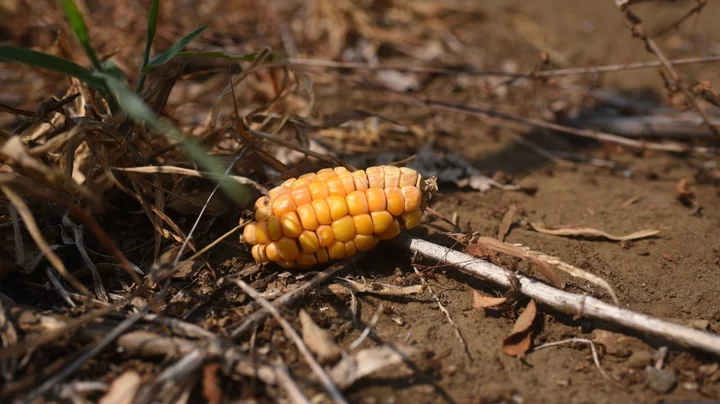The US is preparing to accelerate its complaint that Mexico’s ban on genetically modified corn violates the nations’ free-trade deal, heightening tensions between neighbors.
The US Trade Representative’s office plans to request the formation of a dispute resolution panel under the US-Mexico-Canada Agreement on Thursday, according to people familiar with the matter, who asked not to be identified without permission to speak publicly.
The USTR press office declined to comment.
The panel of trade experts — whose findings are binding — would be charged with deciding whether Mexico’s corn policy is inconsistent with the trade pact. If the group sides with the US, it could ultimately result in tariffs on Mexican goods.
US Trade Representative Katherine Tai requested formal dispute settlement consultations with Mexico under the trade pact in early June, starting an initial 75-day clock.
That period expired on Wednesday. While the two nations are free to continue those discussions, and the US isn’t required to ask for a panel to be formed, Thursday is the first day that it can make the request.
Earlier: Canada Joins US Trade Complaint Against Mexico’s GMO Corn Ban
While the corn dispute is unlikely to interrupt otherwise robust trade between the countries, it could make it more difficult for the Biden administration to win Mexico’s cooperation on other issues including migration and the trafficking of fentanyl.
American officials have repeatedly criticized the Mexican government’s prohibition on GMO corn for human consumption, calling the policy unscientific. GMO corn for animals is allowed.
While Mexican President Andres Manuel Lopez Obrador has asserted that genetically modified corn could harm human health, he hasn’t presented evidence of its effects.
The escalation risks complicating the relationship between the two nations, given that Lopez Obrador, known as AMLO, reacted angrily to a US request for dispute talks over his nationalist energy policy little more than a year ago. Mexico is the US’s largest trading partner, with almost $400 billion in commerce through the first half of this year, according to data from the US Commerce Department’s Census Bureau.
Like Mexico’s oil, which according to the nation’s constitution belongs to its citizens, corn is a sensitive issue. It has had historic significance since the Aztec empire five centuries ago and retains an essential and treasured place in the Mexican diet.
Corn is also an important crop in the US, both for domestic consumption and export, and several states that produce it, including Minnesota, Wisconsin and Michigan may well help decide who wins the 2024 presidential election.
Lopez Obrador and Biden have shown signs of collaboration of late, with the Mexican leader saying earlier this week that he plans to meet with Biden at the Asia-Pacific Economic Cooperation summit this November.
In the case of the energy disagreement, the US and Mexico decided to extend the talks beyond the initial 75-day period last October. While they’ve officially continued since then, there’s been no sign of either a complete resolution or a request to form a dispute panel.
The National Corn Growers Association, a US trade group, has urged the Biden administration to request the dispute resolution panel. The issue has mobilized elected representatives including Iowa Senators Chuck Grassley and Joni Ernst, both Republicans.
Though the bulk of the corn that Mexico imports is used as animal feed, the vast majority of US corn is genetically modified, leaving growers concerned about losing a major market for their products.









